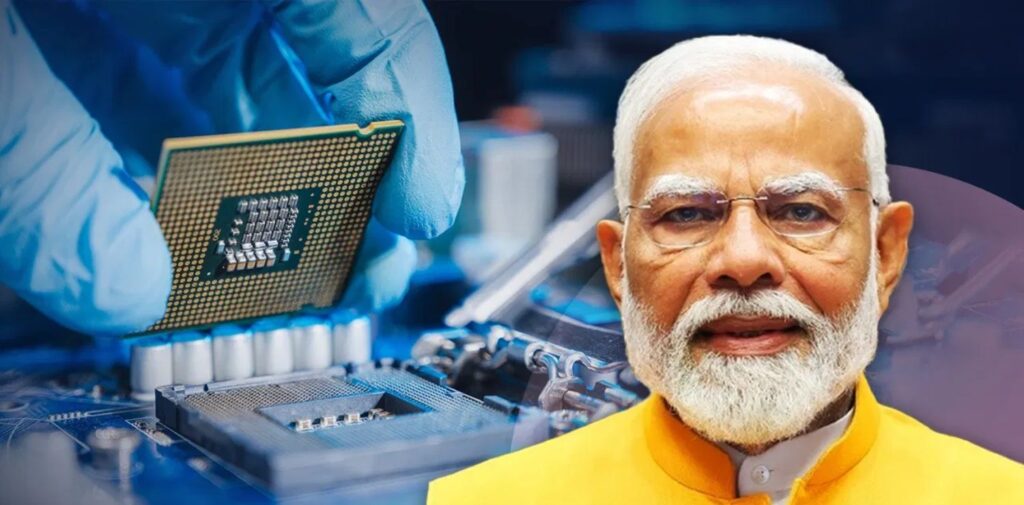The recent claims by Karnataka IT Minister Priyank Kharge have sparked a debate regarding the direction of semiconductor investments in India. Kharge has accused the central government of using political influence to divert crucial semiconductor projects away from Karnataka, a state known for its tech ecosystem, to Gujarat. According to Kharge, this is not just a matter of business decisions but a result of political maneuvering that may be detrimental to the industry’s growth and India’s overall semiconductor ambitions.
Political Interference Allegations
Priyank Kharge’s primary accusation centers on the idea that semiconductor companies are being pressured to invest in Gujarat, despite the more conducive tech environment available in Karnataka and Tamil Nadu. Both states have a well-established ecosystem for tech industries, including research and development centers, skilled labor, and policies that favor innovation. However, Kharge claims that none of the major semiconductor investments are flowing into these states, primarily due to political influence from the central government, allegedly favoring Gujarat.
The Role of the Central Government
The Indian central government, under Prime Minister Narendra Modi, has been pushing to make India a global leader in semiconductor manufacturing. The government’s Semiconductor Mission, which aims to attract semiconductor investments through various incentives, is a key part of India’s ambition to reduce dependence on imports and become self-sufficient in the tech sector. However, allegations that these efforts are being used to favor Gujarat over other states have cast a shadow on this initiative.
Kharge’s allegations of favoritism stem from the perception that Gujarat, Modi’s home state, is receiving undue attention and benefits when it comes to high-tech investments. He even suggested that companies are being “arm-twisted” into setting up operations in Gujarat, despite other states offering more robust ecosystems.
This raises concerns about whether the central government is creating a level playing field for all states or whether political motivations are at play.

Why Semiconductor Investments Matter?
The semiconductor industry is critical to India’s aspirations of becoming a global tech leader. Semiconductors are the backbone of modern electronics, powering everything from smartphones to electric vehicles. With the ongoing global chip shortage, countries around the world are competing to attract semiconductor investments to ensure they have a steady supply of chips for their industries. India, with its vast pool of tech talent and growing digital economy, is well-positioned to become a major player in this space.
However, for India to succeed in its semiconductor ambitions, investments must be directed toward states that have the necessary infrastructure, talent, and policies to support the industry. Karnataka, with its established tech ecosystem, is one such state. Diverting investments to regions that may not have the same capabilities could hinder the growth of the semiconductor industry in India.

The Importance of a Level-Playing Field
The allegations of political interference highlight the need for a transparent and merit-based approach to investment allocation. If companies are being pressured to invest in certain states for political reasons, it could undermine India’s efforts to become a global semiconductor hub. Semiconductor manufacturing is a highly complex and capital-intensive industry that requires the right mix of infrastructure, skilled labor, and innovation. States like Karnataka and Tamil Nadu have built ecosystems that can support this industry, and overlooking them in favor of political considerations could be detrimental to India’s long-term goals.
Moreover, the semiconductor industry is not just about manufacturing chips; it also involves research and development, innovation, and the creation of intellectual property. Karnataka’s tech ecosystem, with its R&D centers and highly skilled workforce, is better suited to support these activities compared to states that may not have the same level of expertise. Diverting investments to states that lack these capabilities could lead to suboptimal outcomes for the industry.
Seeking Public Opinion
Kharge’s remarks invite a broader discussion on how semiconductor investments should be distributed across India. Should political considerations take precedence over economic and technical factors when deciding where to allocate investments? Is the central government’s current approach fostering healthy competition between states, or is it skewed in favor of certain regions? These are important questions that need to be addressed if India is to achieve its goal of becoming a global semiconductor powerhouse.
The minister’s criticism also suggests that the government needs to be more transparent in its decision-making process. A clear and open process for determining where semiconductor investments should be directed could help build trust and ensure that investments are going to states that are best equipped to support the industry.

Conclusion: Is Political Influence Hindering Progress?
The semiconductor industry is vital for India’s future as a tech-driven economy, and it’s crucial that investments in this sector are made based on merit and capability, not political influence. Karnataka IT Minister Priyank Kharge’s allegations raise concerns about the fairness of the central government’s approach to attracting semiconductor investments. While Gujarat has its own merits, overlooking tech hubs like Karnataka and Tamil Nadu could slow down India’s progress in becoming a global leader in semiconductor manufacturing.
Ultimately, the debate sparked by Kharge’s comments points to a larger issue: how to ensure that India’s economic development is not hampered by political favoritism. As India continues its journey to becoming a tech superpower, investments must be made in regions that have the right ecosystem to support long-term growth, rather than being driven by short-term political gains. Public opinion and expert advice should guide these decisions to ensure a balanced and fair approach to India’s semiconductor future.



